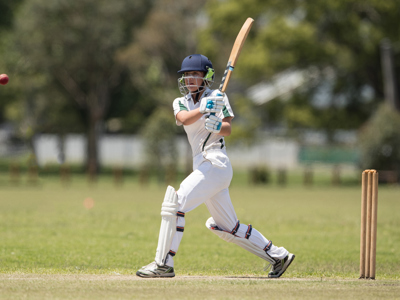Review of the report of the Independent Inquiry into Child Sexual Abuse
Alison Millar, head of Leigh Day Abuse Team, reflects on the the report of the Independent Inquiry into Child Sexual Abuse (IICSA)
Posted on 20 October 2022
Today I attended the pre-publication review of the report of the Independent Inquiry into Child Sexual Abuse (IICSA), on behalf of Child Migrants Trust, an amazing organisation that has fought over decades to expose the scandal of Britain’s forced child migration programmes.
The suffering of the child migrants, who were uprooted from their families and their communities – some being lied to that their parents were dead – and often removed to brutal conditions in the receiving institutions in Australia and other former British colonies was discussed in the first of IICSA’s 19 Investigation Reports back in early 2018.
It was a surreal experience leaving the read-through this morning only to learn that the Prime Minister had resigned.
Inevitably, questions will be asked whether the Inquiry process, which took eight years and cost tens of millions, has been worth it and whether any of its recommendations will translate to action at this time of turmoil.
IICSA has explored diverse themes: from the allegations against people of public prominence associated with Westminster that initiated the calls for the inquiry to be set up to much more recent child sexual abuse and exploitation facilitated by the internet, and various schools, councils and churches. There have been some notable omissions such as abuse in sport, as my colleague Dino Nocivelli has commented.
The Inquiry’s final report, despite being 458 pages, makes only 20 recommendations, six of which have been made before but have been restated because they were not properly addressed or acted upon by those to whom they were directed.
Some of these recommendations immediately catch attention. The recommendation that legislation is introduced in England and Wales to place individuals working in regulated activities or in positions of trust under a statutory obligation to report child sexual abuse (Mandatory Reporting) is something for which a broad coalition of survivors and those representing them have been calling for a long time.
The statutory duty proposed by IICSA is quite wide in that it would cover circumstances where an individual working with children observes “well-recognised indicators of child sexual abuse” that give rise to a reasonable suspicion that a child has experienced, or is experiencing, child sexual abuse.
IICSA sets out in the chapter of the report dealing with identifying and reporting child sexual abuse non-exhaustive lists of indicators of child sexual abuse and child sexual exploitation, taken from the NHS website. These include clear warning signs such as children exhibiting sexualised or sexually harmful behaviour and consequences of sexual activity such as genital soreness, sexually transmitted infections or under-age pregnancy.
IICSA states that these indicators should be set out in detailed guidance that can be updated and needed. This introduces a welcome element of objectivity into what should count as a reasonable suspicion of child sexual abuse; however, concerningly, the Inquiry then goes on to say that a failure in respect of this aspect of the duty to report should not attract a criminal sanction.
It is only where an individual has actually witnessed or received a disclosure of child sexual abuse that it will be a criminal offence to fail to report that to the local authority or police force.
This is very narrow and will take away much of the ‘teeth’ necessary to make a mandatory reporting obligation effective. It is the possibility of criminal consequences that really differentiates mandatory reporting laws from current inadequate safeguarding responsibilities, protects those who wish to blow the whistle on co-workers and makes it clear that considerations of an organisation’s or community’s reputation, the respected status of the alleged perpetrator or even uncertainty about the correct procedures must not deter reports being made.
IICSA has recommended the set-up of a national redress scheme for England and Wales. This is another area where this jurisdiction has fallen behind other countries such as Republic of Ireland, Northern Ireland, Scotland and Australian states. The scheme IICSA recommends is to be limited in duration to a period of 5 years and restricted to child sexual abuse that took place prior to the establishment of the scheme.
IICSA states that the redress scheme should be for survivors of child sexual abuse and exploitation but comments that the Inquiry’s work revealed that child sexual abuse and exploitation are often accompanied by other forms of abuse, such as physical abuse, emotional abuse and neglect, each of which can have similarly devastating impacts on survivors. This is my experience too as a representative who has been working for survivors of abuse for many years and it is very important that any redress scheme encompasses these other damaging forms of abuse in childhood.
The proposed Scheme does not require survivors to sign a waiver of their legal rights to accept payments. This has been controversial in Scotland and is to be welcomed but what is less helpful is the lack of a clear recommendation that independent legal assistance will be funded to help survivors to navigate the scheme. IICSA recognises that some victims and survivors may struggle to complete the application process without assistance but suggests that support and assistance should be supplied by the Redress scheme, through the provision of advice and trained caseworkers.
However, will the new scheme have capacity to do this, as well as process applications from all the survivors who will wish to apply, mindful that there is a five-year deadline? There has been a lot of concern and anger over backlog in the Scottish redress scheme, with applications stuck in long queues even before they get sent for consideration.
IICSA’s proposed scheme works on a two-tier model where an initial tier fixed-rate payment will be available to those who meet the eligibility requirements of the scheme without needing to provide a lot of detail, whilst at the second-tier applicants will need to provide more evidence of the abuse they experienced and its impact (which may be medical evidence).
IICSA envisages that any medical evidence will be already available to the survivor, for example from their GP. The report states that new medical assessments should only take place where strictly necessary. However, in my experience survivors of child abuse may not seek medical advice for their related health problems. As the Inquiry recognises, powerful barriers still exist in relation to making a disclosure of child sexual abuse and the average time to making a disclosure is 26 years. A short consultation with a GP may well also not discuss the range of impacts on a survivor’s life, work and relationships. A new medical assessment may be very necessary to capture this and the redress scheme should provide for this.
It also needs to provide for specialist independent legal assistance for survivors to help them to navigate the process, consider offers and whether to opt into the scheme in the first place or pursue other forms of reparations, such as a civil or criminal injuries claim. Survivors are likely to be confused as to the array of options potentially open to them and should be able to access independent assistance to help them to make the best choice.
I think IICSA has also missed a trick in proposing a redress scheme that appears to offer financial payments as the sole means of redress. This is surprising when earlier in the chapter on “Making amends” IICSA has recognised that survivors may find valuable other forms of reparation, such as acknowledgement of their experiences, apologies and meaningful assurances of prevention. There was a real opportunity missed here to recommend non-financial forms of redress which are not provided for by existing litigation processes.
The lengthy and detailed IICSA report makes many other findings and recommendations, some of them welcome, including the removal of the three-year limitation period for child sexual abuse claims, which has been a huge barrier to justice for some survivors; registration of staff working in care roles in children’s homes; outlawing the use of ‘pain compliance techniques’ in youth custodial institutions; and recommending that the UK government makes it mandatory for internet companies to ‘pre-screen’ for known child sexual abuse images so that these are taken out of circulation.
The report also recommends a ‘national guarantee’ that child victims of sexual abuse will be offered specialist and accredited therapeutic support. This should be provided without the imposition of additional eligibility criteria (other than having been a victim of child sexual abuse) which have been used to screen out traumatised children from help from child and adolescent mental health services.
IICSA acknowledges that adult survivors of abuse also need timely and effective support, particularly therapeutic support, and this can make a significant difference to recovery. At the moment, access to it is patchy with one victim and survivor quoted as having described the process of trying to access support as a “nightmare merry-go-round”.
It is disappointing in the circumstances that IICSA has not made a specific recommendation for specialist trauma-informed support for adult survivors. There needs to be an ongoing commitment and clear funding provision to supporting adults who were abused as children, including those who have bravely given evidence to or otherwise participated in this inquiry. The survivors of these serious and life changing crimes require this.

Alison Millar
Alison Millar works in the human rights department at Leigh Day, where she is the head of abuse claims



